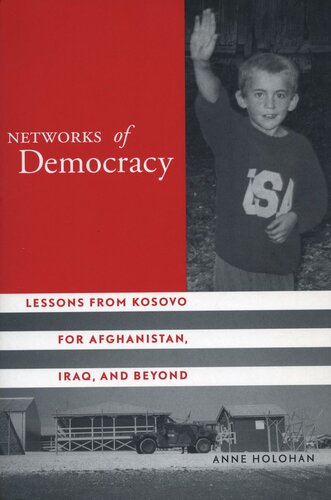

Most ebook files are in PDF format, so you can easily read them using various software such as Foxit Reader or directly on the Google Chrome browser.
Some ebook files are released by publishers in other formats such as .awz, .mobi, .epub, .fb2, etc. You may need to install specific software to read these formats on mobile/PC, such as Calibre.
Please read the tutorial at this link: https://ebookbell.com/faq
We offer FREE conversion to the popular formats you request; however, this may take some time. Therefore, right after payment, please email us, and we will try to provide the service as quickly as possible.
For some exceptional file formats or broken links (if any), please refrain from opening any disputes. Instead, email us first, and we will try to assist within a maximum of 6 hours.
EbookBell Team

0.0
0 reviewsIn 1999, the United Nations embarked on a massive intervention in Kosovo. This book compares the fate of two adjacent municipalities two years into that intervention. Though similar in all key respects, by 2001 the municipalities were headed down markedly different paths—one making progress toward institution-building, democratization, and reconstruction, the other stagnating. Drawing on extensive field research, the author shows that the successful municipality was able to bring together international organizations and local populations as part of a “network” organization. The lack of progress in the second municipality was due to the same organizations staying behind bureaucratic walls, and keeping local populations at a distance. In both municipalities, information and communication technologies contributed in surprising ways to the success or failure of the international efforts. This book has relevance for interventions around the world, most obviously for the challenging situations in Afghanistan and Iraq, and the author develops policy recommendations in the concluding section. No other book on nation-building or democratization examines the daily behavior in an international intervention to answer the big question: How do you get from the chaos of a post-conflict society to one with functioning institutions?